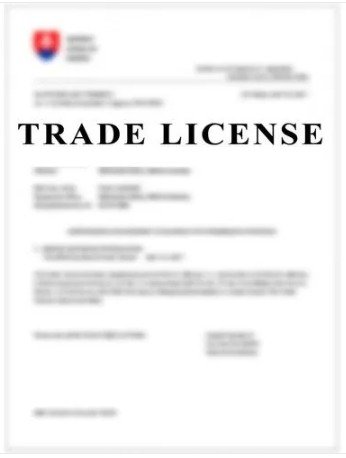
Trade License
A trade license registration is nothing more than a legal certificate or document issued by an authorised state government entity (usually a local municipality). It gives the applicant (a person or party) permission to begin operating a business in a certain area or place. The business that obtains the license is required to abide by the authority’s established rules and regulations.
Points to Be Considered for Obtaining Trade License
A trade license can be granted only by the local municipal government where the business functions
It can only be applied to the tasks for which it was specifically granted
Different states have different requirements, regulations, standards, deadlines, processes, and pricing structures for a trade license
A company with a trade license registration will have a comparative advantage over one without one in terms of goodwill, brand recognition, and competitive advantage
The presence of such a license indicates that the business is engaged in legal business activity.
Businesses Requiring Trade License Registration
Here are some common types of businesses that typically require in India:
1. Shops and Establishments: Almost all businesses that involve trading or commercial activities, such as retail stores, restaurants, hotels, theaters, amusement parks, and other similar establishments, usually need a trade license from the local municipal corporation.
2. Food Establishments: Businesses dealing with the preparation, sale, or distribution of food and beverages, including restaurants, cafes, food stalls, food processing units, and catering services, often require a trade license along with a Food Safety and Standards Authority of India (FSSAI) license.
3. Manufacturing Units: Industries involved in manufacturing and production, such as factories, workshops, and industrial plants, are typically required to obtain a trade license to ensure adherence to safety and environmental regulations.
4. Healthcare Facilities: Hospitals, clinics, nursing homes, diagnostic centers, and other medical establishments need a trade license to ensure that they meet the necessary standards and regulations for providing healthcare services.
5. Entertainment and Leisure Activities: Businesses related to entertainment and leisure, such as cinema halls, multiplexes, video game parlors, gyms, spas, and health clubs, often require a trade license to ensure public safety and compliance with local regulations.
6. Transport Services: Businesses offering transportation services like auto rickshaws, taxis, cab aggregators, and goods carriers may need a trade license to operate legally.
7. Construction and Real Estate: Real estate developers, construction companies, and contractors might require a trade license to carry out their activities within specific municipal limits.
8. Fireworks and Explosives: Businesses involved in the manufacturing, storage, sale, or use of fireworks and explosive materials are subject to strict regulations and typically require a trade license.
9. Liquor Establishments: Businesses dealing with the sale and distribution of alcoholic beverages, such as liquor shops, bars, and pubs, require a trade license along with necessary permits from relevant authorities.
10. Street Vendors and Hawkers: Individuals or groups engaged in street vending or hawking activities may need a trade license or a specific vendor license from local authorities.
